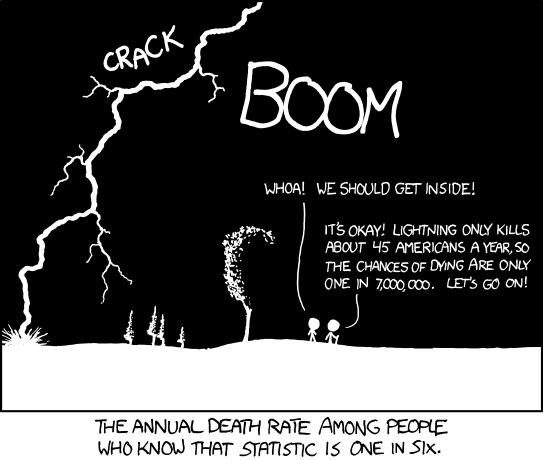The following table lists a number of rare events, arranged on a deciban scale. The deciban is a logarithmic unit — much like the decibel or the Richter scale — introduced by Alan Turing for expressing probabilities. It is a tenth of a ban, which is also known as the base-10 log-odds.
Please note that these are only rough estimates for the purpose of providing intuition for the relative likelihood of various rare events. Many are based on population averages, and do not apply to you personally. As always, keep the above comic in mind ;)
| decibans | event |
|---|
